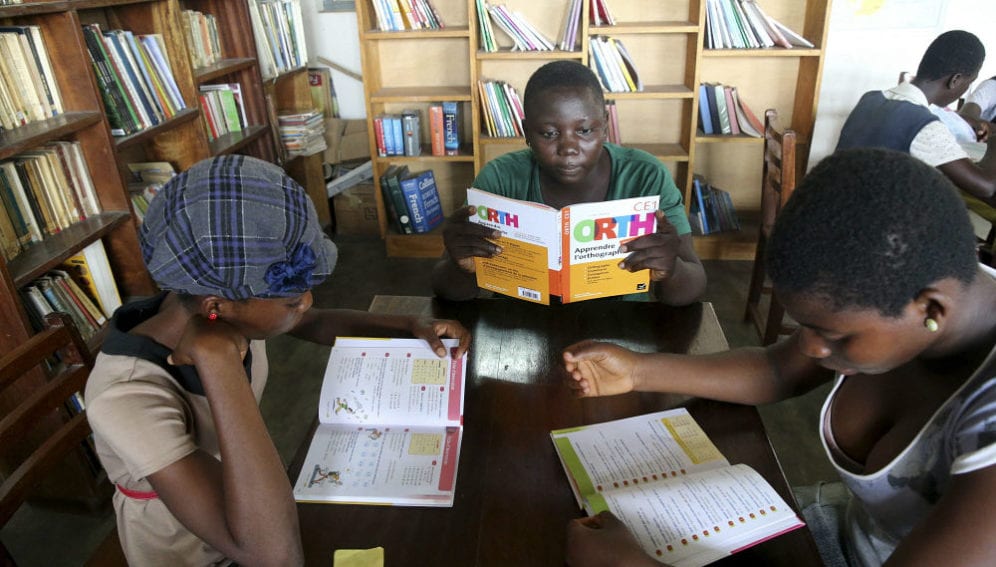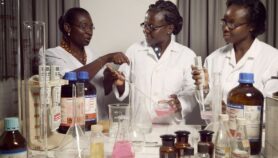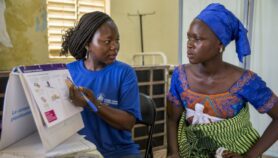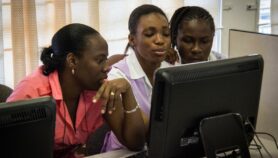By: Sam Otieno
Send to a friend
The details you provide on this page will not be used to send unsolicited email, and will not be sold to a 3rd party. See privacy policy.
[NAIROBI] Eliminating gender stereotypes in science, technology, engineering and mathematics (STEM) could aid sustainable development in Africa, a forum says.
During an event held in Kenya last week (12 February) to celebrate the international day for women and girls in science, experts called for more action from key actors including African governments to encourage women’s involvement in STEM.
The event brought together women scientists who have made a difference in STEM fields with the aim of encouraging young female scientists as well as girls in secondary schools and universities to look beyond the gender stereotypes and embrace STEM careers.
“Early-career scientists must be provided with mentorship opportunities to help them break the glass ceiling in their job development.”
Sahle-Work Zewde, United Nations Office at Nairobi
Jane Catherine Ngila, deputy-director of training, academic and linkages at the Morendat Institute of Oil and Gas in Kenya, notes that STEM could make societies more sustainable, and that there is a need to tackle gender stereotypes — defined as preconceived ideas whereby females and males are assigned roles determined and limited by their gender.
The meeting was convened by United Nations Educational, Scientific and Cultural Organisation (UNESCO) in partnership with Forum for African Women Educationalists (FAWE), Microsoft Kenya, African Women in Science and Engineering and Kenya’s National Commission for Science, Technology and Innovation.
According to Sahle-Work Zewde, the director-general of the United Nations Office at Nairobi, Kenya, underuse of women’s capacity in science could be traced to poor participation and performance in STEM subjects right from basic to higher educational levels.
“Early-career scientists must be provided with mentorship opportunities to help them break the glass ceiling in their job development,” says Zewde, adding that there has to be a paradigm shift to encourage more girls to be interested in STEM.
She calls for the work of professional women scientists to be given visibility through equal opportunities for their contribution and governance in a broad range of high-level scientific bodies and events.
Hendrina Doroba, FAWE’s executive director, tells SciDev.Net that relevant authorities need to develop and adopt actions and policies to support women’s’ increased representation in decision making.
According to Doroba, despite the availability of data on gender stereotypes, African governments are not using them to make decisions.
Data [on gender stereotypes] should be analysed from grassroots and disseminated,” she says, adding that doing so could help raise awareness and empowerment issues about women in STEM.
This piece was produced by SciDev.Net’s Sub-Saharan Africa English desk.














